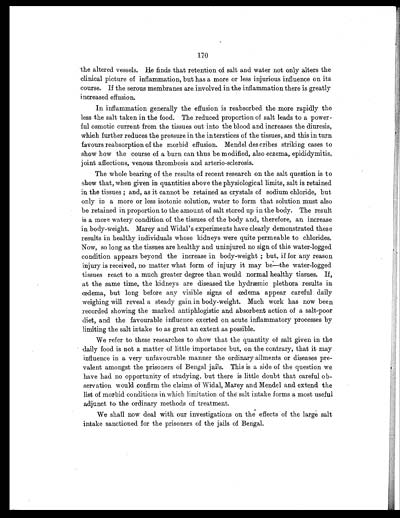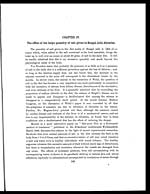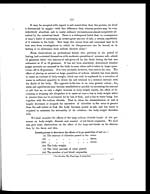Medicine - Institutions > Army health reports and medical documents > Scientific memoirs by officers of the Medical and Sanitary Departments of the Government of India > Number 37 - Investigations on Bengal jail dietaries > Part I > Chapter IV - Effects of the large quantity of salt given in Bengal jail dietaries
(180) Page 170
Download files
Individual page:
Thumbnail gallery: Grid view | List view

170
the altered vessels. He finds that retention of salt and water not only alters the
clinical picture of inflammation, but has a more or less injurious influence on its
course. If the serous membranes are involved in the inflammation there is greatly
increased effusion.
In inflammation generally the effusion is reabsorbed the more rapidly the
less the salt taken in the food. The reduced proportion of salt leads to a power-
ful osmotic current from the tissues out into the blood and increases the diuresis,
which further reduces the pressure in the interstices of the tissues, and this in turn
favours reabsorption of the morbid effusion. Mendel describes striking cases to
show how the course of a burn can, thus be modified, also eczema, epididymitis,
joint affections, venous thrombosis and arterio-sclerosis.
The whole bearing of the results of recent research on the salt question is to
show that, when given in quantities above the physiological limits, salt is retained
in the tissues; and, as it cannot be retained as crystals of sodium chloride, but
only in a more or less isotonic solution, water to form that solution must also
be retained in proportion to the amount of salt stored up in the body. The result
is a more watery condition of the tissues of the body and, therefore, an increase
in body-weight. Marey and Widal's experiments have clearly demonstrated these
results in healthy individuals whose kidneys were quite permeable to chlorides.
Now, so long as the tissues are healthy and uninjured no sign of this water-logged
condition appears beyond the increase in body-weight; but, if for any reason
injury is received, no matter what form of injury it may be—the water-logged
tissues react to a much greater degree than would normal healthy tissues. If,
at the same time, the kidneys are diseased the hydræmic plethora results in
œdema, but long before any visible signs of œdema appear careful daily
weighing will reveal a steady gain in body-weight. Much work has now been
recorded showing the marked antiphlogistic and absorbent action of a salt-poor
diet, and the favourable influence exerted on acute inflammatory processes by
limiting the salt intake to as great an extent as possible.
We refer to these researches to show that the quantity of salt given in the
daily food is not a matter of little importance but, on the contrary, that it may
influence in a very unfavourable manner the ordinary ailments or diseases pre-
valent amongst the prisoners of Bengal jails. This is a side of the question we
have had no opportunity of studying, but there is little doubt that careful ob-
servation would confirm the claims of Widal, Marey and Mendel and extend the
list of morbid conditions in which limitation of the salt intake forms a most useful
adjunct to the ordinary methods of treatment.
We shall now deal with our investigations on the effects of the large salt
intake sanctioned for the prisoners of the jails of Bengal.
Set display mode to: Large image | Zoom image | Transcription
Images and transcriptions on this page, including medium image downloads, may be used under the Creative Commons Attribution 4.0 International Licence unless otherwise stated. ![]()
| Permanent URL | https://digital.nls.uk/75033255 |
|---|




